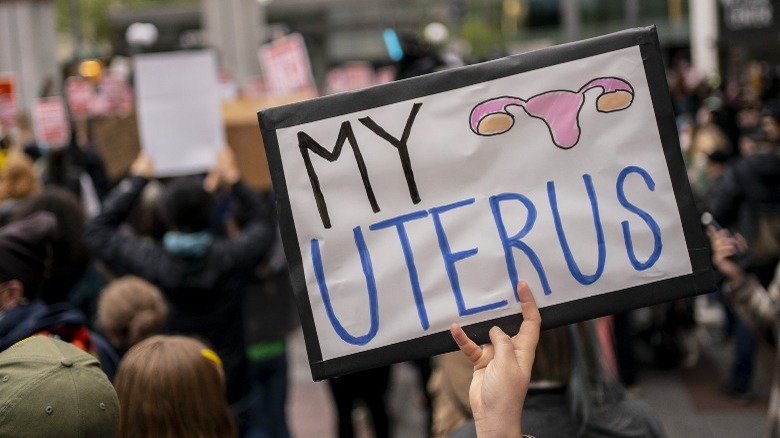4 States Taking A Stand Against Texas' Abortion Pill Ruling
Mifepristone is the only FDA-approved abortion medication. Since its approval in 2000, the pill has been taken by more than 5.6 million Americans, and boasts an exceedingly safe and effective record. The majority of abortions in the United States are completed through the use of medication, where mifepristone is the first pill taken in a two-step regimen typically used to complete an abortion, along with the drug misoprostol. As such, these medications have become among the most crucial obstacles in the way of Republican lawmakers seeking the total evisceration of abortions in the United States. And a federal judge in Texas has taken Republicans one step further toward this goal.
In April 2023, an appointee of former president Donald Trump, Judge Matthew Kacsmaryk stayed the FDA approval of mifepristone, the abortion pill that has been taken by more than 5.6 million Americans since its FDA approval in 2000. Without intervention, the ruling could potentially see mifepristone removed entirely from the market, which would have implications nationwide for those in need of abortion — not just in states where abortion has been banned or restricted.
Earlier this week, President Joe Biden laid out everything at stake in a statement: "If this ruling were to stand, then there will be virtually no prescription, approved by the FDA, that would be safe from these kinds of political, ideological attacks." At the time of writing, the Department of Justice has appealed the ruling to an appellate court, where the fate of access to mifepristone will be determined. Some states, however, are not waiting for a final decision to take proactive measures ensuring the availability of the abortion medication for their residents. This is how four states, Washington, California, Massachusetts, and New York, are responding.
Washington state files a competing complaint
Citing the fact that approximately 60% of the state's abortions are through the use of medication, Thomas O. Rice, a federal judge in Washington state, complicated the Texas ruling as he ordered the FDA not to take action that would restrict access to abortion pills where abortion is legal, per AP. Issued just minutes after Kacsmaryk's ruling, Rice's competing decision ensures that mifepristone will remain on the market — for now — in 17 states and the district of Columbia, which together sued the FDA and the Department of Health and Human Services. As the opposing order in Texas is on hold, such access could completely change depending on the ultimate ruling in the appellate court. "Attacks on reproductive freedom will continue, but we will continue to fight for the right to access mifepristone in Washington," Washington attorney general Bob Ferguson said in a press release.
Meanwhile, Washington state is also cultivating a stockpile of abortion medication — a trend amongst states where abortion rights are protected — should the worst-case scenario come to fruition. According to the AP, Washington state has procured a supply of 30,000 doses (about three-year's worth) of mifepristone for about $1.28 million.
California takes a stand against Walgreens
California, a state that has long since codified reproductive rights in its constitution along with recently reinforcing the right to an abortion with a state statute, is among the first states to take a stand against the institutional manipulation of access to mifepristone. After Walgreens announced that it would not sell abortion pills in states where abortion is banned or restricted, California governor Gavin Newsom decided not to renew the state's contract with the pharmaceutical giant. Even though Walgreens confirmed in a letter to Kansas state attorney general, Kris Kobach that it plans to sell the abortion pills in states where abortion is legal, the chain decided it would limit or cut off access in states where abortion is banned after being threatened with legal action by 20 Republican state attorneys general, NPR reports.
"California will not stand by as corporations cave to extremists and cut off critical access to reproductive care and freedom," Newsom said in a press release. However, the press release cites that Walgreens is both inhibiting access to abortion pills where they are critically needed — in states where abortion rights are being taken away — and in states where abortion is legal. Additionally, California is buying a stockpile of misoprostol, where 250,000 pills have been delivered to the state this week, and up to 2 million are expected to be kept, the Sierra Sun Times reports.
Massachusetts stockpiles Misoprostol
Massachusetts is another state acquiring a stockpile of abortion medication. Per Bloomberg Law, state governor Maury Healey ordered the purchasing of 15,000 doses of mifepristone — about a year's supply. Health care providers and institutions in Massachusetts are also purchasing doses of the abortion pills.
Healey also issued an executive order that bolsters protection specifically for medication abortions in her state. The executive order will also ensure that relevant guidance is issued surrounding the order, as well as channel further support and resources into public universities that plan to maintain access to abortion. "The action we are taking today protects access to mifepristone in Massachusetts and protects patients, providers and pharmacists from liability. In Massachusetts, we stand for civil rights and freedom. We will always protect access to reproductive health care, including medication abortion," Healey said during a press conference, which was joined by senator Elizabeth Warren and congresswoman Ayanna Pressely.
New York solidifies online access to abortion pills
Elsewhere on the East Coast, New York state has sought to ensure that telemedicine remains an option for those who must obtain abortion medications from out of state. Telemedicine has become a crucial issue for states seeking to restrict access to abortion medications, where some have also banned the use of telemedicine to obtain abortion medications. New York Senate Bill S1066A was passed by the state senate in late January 2023 in an effort to counteract this attack on online health care. Senator Shelley Mayer, one of the sponsors of the bill, said, "This legislation will protect reproductive health care providers by safeguarding them against any out-of-state interference –– allowing New York providers to be a resource for Americans who have had their rights stripped away" (via Spectrum News). The bill also defines that such providers cannot be arrested for offering such care.
New York has also committed to some creative initiatives when it comes to maintaining abortion access. For example, abortion medications are offered in New York City — free of charge — at certain public health clinics. And New York City also has a confidential abortion hotline through its Abortion Access Hub, which will walk callers through the entire process of obtaining an abortion, including scheduling an appointment, securing transportation, and supplying any further resources when necessary. The best part? One does not need to be a New York resident to access the hotline.
What happens next?
With so much hinging on the decision of the Texas lawsuit, and with abortion policies changing on a seemingly hour-by-hour basis, all we can expect is for the fight to continue to maintain access reproductive health care, including the ability to obtain abortion medications. Should the Texas order continue without intervention, mifespristone will no longer have FDA approval, meaning it could be effectively be wiped from the market. But should the Washington state order hold, the FDA would have competing legal obligations. PBS reports that the FDA could use a tactic called "enforcement discretion" that would allow the FDA to meet both orders, throwing the states into an even more opaque legal landscape.
Health care providers are anticipating an increased number of one-pill abortions, using just misoprostol, which is as safe as the typical regimen, but could entail more side-effects.
Experts also note that the implications of undercutting the function of the FDA are far-reaching. Should the Texas order move forward, perhaps the better question to ask is, what is not next? States would be wise to continue presenting and passing proactive measures against anticipated attacks from Republican lawmakers.





